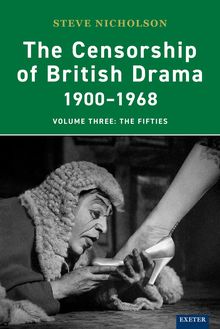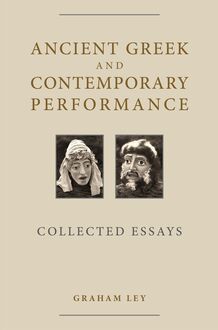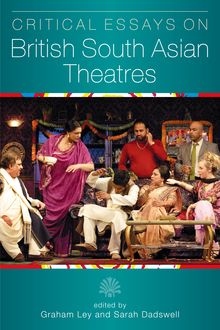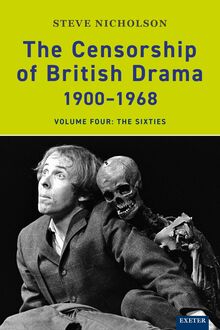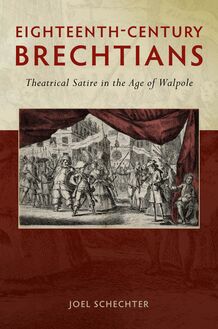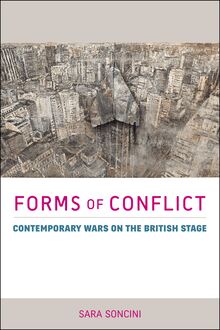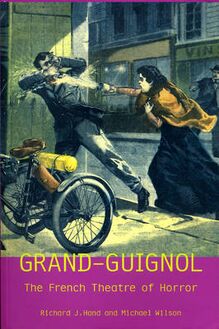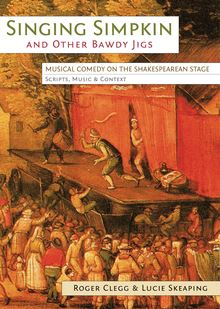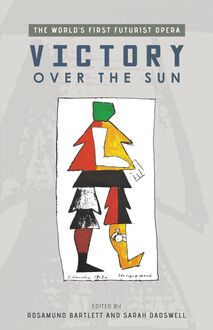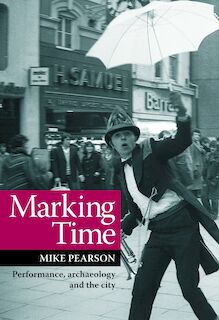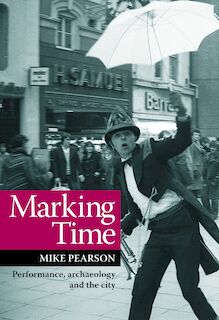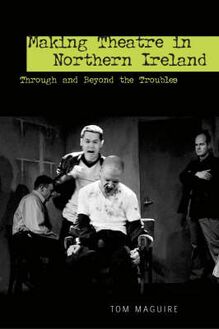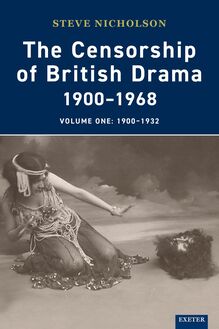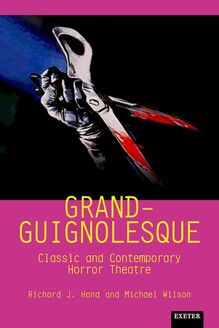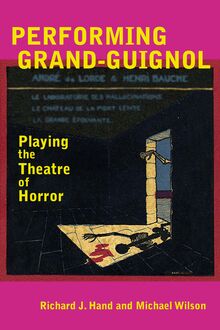-
 Univers
Univers
-
 Ebooks
Ebooks
-
 Livres audio
Livres audio
-
 Presse
Presse
-
 Podcasts
Podcasts
-
 BD
BD
-
 Documents
Documents
-
- Cours
- Révisions
- Ressources pédagogiques
- Sciences de l’éducation
- Manuels scolaires
- Langues
- Travaux de classe
- Annales de BEP
- Etudes supérieures
- Maternelle et primaire
- Fiches de lecture
- Orientation scolaire
- Méthodologie
- Corrigés de devoir
- Annales d’examens et concours
- Annales du bac
- Annales du brevet
- Rapports de stage
La lecture à portée de main
Vous pourrez modifier la taille du texte de cet ouvrage
Découvre YouScribe en t'inscrivant gratuitement
Je m'inscrisDécouvre YouScribe en t'inscrivant gratuitement
Je m'inscrisEn savoir plus
Vous pourrez modifier la taille du texte de cet ouvrage
En savoir plus

Description
Marking Time: Performance, archaeology and the city charts a genealogy of alternative practices of theatre-making since the 1960s in one particular city – Cardiff. In a series of five itineraries, it visits fifty sites where significant events occurred, setting performances within local topographical and social contexts, and in relation to a specific architecture and polity. These sites – from disused factories to scenes of crime, from auditoria to film sets – it regards as landmarks in the conception of a history of performance.
Marking Time uses performance and places as a means to reflect on the character of the city itself – its history, its fabric and make-up, its cultural ecology and its changing nature. Weaving together personal recollections, dramatic scripts, archival records and documentary photographs, it suggests a new model for studying and for making performance…for other artistic practices…for other cities.
Marking Time is an urban companion to the rural themes and fieldwork approaches considered in ‘In Comes I’: Performance, Memory and Landscape (University of Exeter Press, 2006).
Preface
Map of the book
Introduction: Cardiff, Performance, Premise, City, Archaeology
NORTH
University Arts Building; University Main Building; University Assembly Hall; 47 Park Place; Sherman Theatre; Sherman Arena Theatre; Cathays Park; National Museum Wales; Park House, 20 Park Place; University Engineering Building
EAST
Bridgend Street; Topaz Street; Ruby Street; Metal Street; Sanquahar Street; Moira Terrace; Adamsdown Cemetery; Howard Gardens; ‘The Vulcan’; ‘The Big Sleep’
SOUTH
Windsor Esplanade; 44/46 James Street; Mount Stuart Square; 7 James Street; Wales Millennium Centre; Senedd/Welsh Assembly Government; 126 Bute Street; Butetown; St Mary’s Church; Callaghan Square
WEST
House; Street; School; Llanover Hall; Chapter; Chapter yard; Chapter Theatre; The Gym; Cowbridge Road; ‘Llwyn yr Eos’
CENTRAL
Queen Street East; Queen Street West; Hayes Island; Morgan Arcade; Caroline Street; Central Station; St Mary’s Street; Westgate Street; Cardiff Castle; Parks
Postscripts: Theatre, Archaeology, City, Cardiff
Sujets
Informations
| Publié par | University of Exeter Press |
| Date de parution | 26 mars 2015 |
| Nombre de lectures | 0 |
| EAN13 | 9780859899864 |
| Langue | English |
| Poids de l'ouvrage | 3 Mo |
Informations légales : prix de location à la page 0,1700€. Cette information est donnée uniquement à titre indicatif conformément à la législation en vigueur.
Extrait
Marking Time
Marking Time charts a genealogy of alternative practices of theatre-making since the 1960s in one particular city – Cardiff. In a series of five itineraries, it visits fifty sites where significant events occurred, setting performances within local topographical and social contexts, and in relation to a specific architecture and polity. These sites – from disused factories to scenes of crime, from auditoria to film sets – it regards as landmarks in the conception of a history of performance. And it uses performance and its places as a means to reflect on the character of the city itself – its history, its fabric and make-up, its cultural ecology and its changing nature. Weaving together personal recollections, dramatic scripts, archival records and documentary photographs, it suggests a new model for studying and for making performance ... for other artistic practices ... for other cities.
Marking Time is an urban companion to the rural themes and fieldwork approaches considered in ‘In Comes I’: Performance, Memory and Landscape (University of Exeter Press, 2006).
Mike Pearson is Leverhulme Research Fellow and Professor of Performance Studies at Aberystwyth University. He is co-author with Michal Shanks of Theatre/Archaeology (2001) and author of ‘In Comes I’: Performance, Memory and Landscape (2006); Site-Specific Performance (2010); and Mickery Theater: An Imperfect Archaeology (2011). He has made theatre professionally for over forty years, notably with Brith Gof (1981–97) and Pearson/Brookes (1997–present). With Mike Brookes, he co-conceived and co-directed The Persians (2010) and Coriolan/us for National Theatre Wales, the latter in collaboration with the Royal Shakespeare Company as a contribution to the World Shakespeare Festival/London 2012.
Exeter Performance Studies
Series editors: Peter Thomson , Professor of Drama at the University of Exeter; Graham Ley , Professor of Drama and Theory at the University of Exeter; Steve Nicholson , Professor of Twentieth-Century and Contemporary Theatre at the University of Sheffield.
From Mimesis to Interculturalism: Readings of Theatrical Theory Before and After ‘Modernism’
Graham Ley (1999)
British Theatre and the Red Peril: The Portrayal of Communism 1917–1945
Steve Nicholson (1999)
On Actors and Acting
Peter Thomson (2000)
Grand-Guignol: The French Theatre of Horror
Richard J. Hand and Michael Wilson (2002)
The Censorship of British Drama 1900–1968: Volume One 1900–1932
Steve Nicholson (2003)
The Censorship of British Drama 1900–1968: Volume Two 1933–1952
Steve Nicholson (2005)
Freedom’s Pioneer: John McGrath’s Work in Theatre, Film and Television
edited by David Bradby and Susanna Capon (2005)
John McGrath: Plays for England
selected and introduced by Nadine Holdsworth (2005)
Theatre Workshop: Joan Littlewood and the Making of Modern British Theatre
Robert Leach (2006)
Making Theatre in Northern Ireland: Through and Beyond the Troubles
Tom Maguire (2006)
“In Comes I”: Performance, Memory and Landscape
Mike Pearson (2006)
London’s Grand Guignol and the Theatre of Horror
Richard J. Hand and Michael Wilson (2007)
Theatres of the Troubles: Theatre, Resistance and Liberation in Ireland, 1980-2000
Bill McDonnell (2008)
The Censorship of British Drama 1900–1968: Volume Three, The Fifties
Steve Nicholson (2011)
British South Asian Theatres: A Documented History
edited by Graham Ley and Sarah Dadswell (2011)
Critical Essays on British South Asian Theatre
edited by Graham Ley and Sarah Dadswell (2012)
Victory over the Sun: The World’s First Futurist Opera
edited by Rosamund Bartlett and Sarah Dadswell (2012)
Marking Time
Performance, archaeology and the city
Mike Pearson
UNIVERSITY of
EXETER PRESS
First published in 2013 by
University of Exeter Press
Reed Hall, Streatham Drive
Exeter EX4 4QR
UK
www.exeterpress.co.uk
© Mike Pearson 2013
The right of Mike Pearson to be identified as author of this work has been asserted by him in accordance with the Copyright, Designs and Patents Act 1988.
British Library Cataloguing in Publication Data
A catalogue record for this book is available from the British Library.
Hardback ISBN 978 0 85989 875 1
Paperback ISBN 978 0 85989 876 8
Designed by Steve Allison, The Design Stage
Typeset in Adobe Systems Warnock Pro and Ahmet Altun’s Halis Rounded.
Printed in Great Britain by Short Run Press Ltd, Exeter.
CONTENTS
List of Illustrations
Acknowledgements
INTRODUCTION
City
Performance
Premise
The Map of the Book
ITINERARIES
North
1. University Arts Building
2. University Main Building
3. University Assembly Hall
4. 47 Park Place
5. Sherman Theatre
6. Sherman Arena Theatre
7. Cathays Park
8. National Museum Wales
9. Park House, 20 Park Place
10. University Engineering Building
East
1. Bridgend Street
2. Topaz Street
3. Ruby Street
4. Metal Street
5. Sanquhar Street
6. Moira Place
7. Adamsdown Cemetery
8. Howard Gardens
9. ‘The Vulcan’
10. ‘The Big Sleep’
South
1. Windsor Esplanade
2. 44-46 James Street
3. Mount Stuart Square
4. 7 James Street
5. Wales Millennium Centre
6. Senedd/Welsh Assembly Government
7. 126 Bute Street
8. Butetown
9. St Mary’s Church
10. Callaghan Square
West
1. House
2. Street
3. School
4. Llanover Hall Youth Arts Centre
5. Chapter Arts Centre
6. Chapter yard
7. Chapter Theatre
8. The Gym, Chapter
9. Cowbridge Road
10. ‘Llwyn yr Eos’
Central
1. Queen Street East
2. Queen Street West
3. Hayes Island
4. Morgan Arcade
5. Caroline Street
6. Central Station
7. St Mary Street
8. Westgate Street
9. Cardiff Castle
10. Parks
REFLECTIONS AFTER WALKING
City
Archaeology
Coda and Postscript
REFERENCE
List of Performances
Bibliography
LIST OF ILLUSTRATIONS
Cover: Cardiff Laboratory Theatre, Hunt the Wren , December 1978 (Steve Allison)
Map of Cardiff
North
Map of North itinerary
1. Theatre in Transit, The Odyssey , February 1970 (unknown)
2. University Main Building, 2013 (courtesy of Cardiff University)
3. RAT Theatre, Hunchback , Mickery Theatre, Amsterdam, December 1973 (Maria Austria, courtesy of Theater Instituut Nederland)
4. Biomechanic training, October 1972 (unknown)
5. Brith Gof, Patagonia , 1992 (Andy Freeman)
6. Cardiff Laboratory for Theatrical Research, The Lesson of Anatomy , July 1974 (Steve Allison)
7. Albert Hodge, ‘Mining’ (1908-12), February 2013 (Mike Pearson)
8. Paul Brewer, ‘A Section of My Studio Floor’ (detail), 1981 (Pete Telfer)
9. Park House, 20 Park Place, February 2013 (Mike Pearson)
10. RAT Theatre, Blindfold , January 1973 (Steve Allison)
East
Map of East itinerary
1. Transitions, Captain Confusius , December 1971 (unknown)
2. Transitions, announcing Dracula’s Castle , August 1972 (unknown)
3. proto-Cardiff Laboratory for Theatrical Research, Image , June 1973 (Steve Allison)
4. Transitions, rehearsing Dracula’s Castle , August 1972 (unknown)
5. East Moors Youth Centre, March 2013 (Mike Pearson)
6. Julie Andree-Trembley, Unexpected Thought , Trace, February 2002 (Trace Archive)
7. Transitions, building Dracula’s Castle , August 1972 (unknown)
8. Keith Wood Group, The Philosopher’s Stone , May 1974 (Steve Allison)
9. Window detail ‘The Golden Cross’, March 2013 (Mike Pearson)
10. ‘The Big Sleep’, March 2013 (Mike Pearson)
South
Map of South itinerary
1. Mike Pearson in Dark Sounds for a City , 2004 (John Rowley; video grab)
2. 44 James Street, early 1990s (Mike Pearson)
3. Former National Westminster Bank, January 2013 (Mike Pearson)
4. 7 James Street, early 2000s (Michael Shanks)
5. Wales Millennium Centre, February 2013 (Mike Pearson)
6. Brith Gof rehearing PAX , Channel Dry Dock, 1990 (Cliff McLucas)
7. Scott Memorial, Cardiff Bay, February 2013 (Mike Pearson)
8. Pavement detail, Bute Street, March 2013 (Mike Pearson)
9. National Theatre Wales De Gabay , in front of St Mary’s Church, 12 March 2013 (Mike Pearson)
10. Site of ‘The Custom House’, Callaghan Square, March 2013 (Mike Pearson)
West
Map of West itinerary
1. Tiled entrance porch, Canton, March 2013 (Mike Pearson).
2. Pavement detail, street, Canton, March 2013 (Mike Pearson)
3. Street marking, school, Canton, March 2013 (Mike Pearson)
4. Llanover Hall Theatre Workshop, The Ancient Mariner , ‘Summerthing’, August 1973 (Steve Allison)
5. André Stitt, The Institution , May 2005 (Phil Babot)
6. IOU, The House , May 1982 (David Wheeler)
7. Brith Gof, In Black and White , 1992 (unknown)
8. Mike Pearson, Fuji Musume , August 1980 (unknown)
9. Architectural detail, ‘The Corporation’, March 2013 (Mike Pearson)
10. ‘The Ivor Davies’, March 2013 (Mike Pearson)
Central
Map of Central itinerary
1. Cardiff Laboratory Theatre, Hunt the Wren , December 1978 (Steve Allison)
2. Pearson/Brookes, Raindogs , November 2002 (video grab)
3. Pearson/Brookes, Raindogs , November 2002 (video grab)
4. Morgan Arcade, March 2013 (Mike Pearson)
5. Caroline Street, March 2013 (Mike Pearson)
6. Pearson/Brookes, Carrying Lyn , June 2001 (Paul Jeff)
7. Solomon Andrews’s phoenix, Central Market, St Mary Street, March 2013 (Mike Pearson)
8. Aberystwyth University students, Lifting , 1999 (Keith Morris)
9. Cardiff Castle Banqueting Hall, 2013 (courtesy of Cardiff City Council)
10. Souvenir postcard, National Pageant of Wales, July 1909
Theatre in Transit, The Odyssey , February 1970 (unknown)
National Theatre Wales Coriolan/us , August 2012 (Marc Douet)
ACKNOWLEDGEMENTS
My enduring thanks are due to many former professional colleagues: Jane Woddis – Theatre in Transit, 1970–72; George Auchterlonie – Transitions, 1971–72, particularly for locating and making available the Transitions archive; Professor Georgiana Gore (Blaise Pascal University, Clermont-Ferrand) – Keele Performance Group, 1972–73; Mick Brennan – RAT Theatre, 1972–7
-
 Univers
Univers
-
 Ebooks
Ebooks
-
 Livres audio
Livres audio
-
 Presse
Presse
-
 Podcasts
Podcasts
-
 BD
BD
-
 Documents
Documents
-
Jeunesse
-
Littérature
-
Ressources professionnelles
-
Santé et bien-être
-
Savoirs
-
Education
-
Loisirs et hobbies
-
Art, musique et cinéma
-
Actualité et débat de société
-
Jeunesse
-
Littérature
-
Ressources professionnelles
-
Santé et bien-être
-
Savoirs
-
Education
-
Loisirs et hobbies
-
Art, musique et cinéma
-
Actualité et débat de société
-
Actualités
-
Lifestyle
-
Presse jeunesse
-
Presse professionnelle
-
Pratique
-
Presse sportive
-
Presse internationale
-
Culture & Médias
-
Action et Aventures
-
Science-fiction et Fantasy
-
Société
-
Jeunesse
-
Littérature
-
Ressources professionnelles
-
Santé et bien-être
-
Savoirs
-
Education
-
Loisirs et hobbies
-
Art, musique et cinéma
-
Actualité et débat de société
- Cours
- Révisions
- Ressources pédagogiques
- Sciences de l’éducation
- Manuels scolaires
- Langues
- Travaux de classe
- Annales de BEP
- Etudes supérieures
- Maternelle et primaire
- Fiches de lecture
- Orientation scolaire
- Méthodologie
- Corrigés de devoir
- Annales d’examens et concours
- Annales du bac
- Annales du brevet
- Rapports de stage
